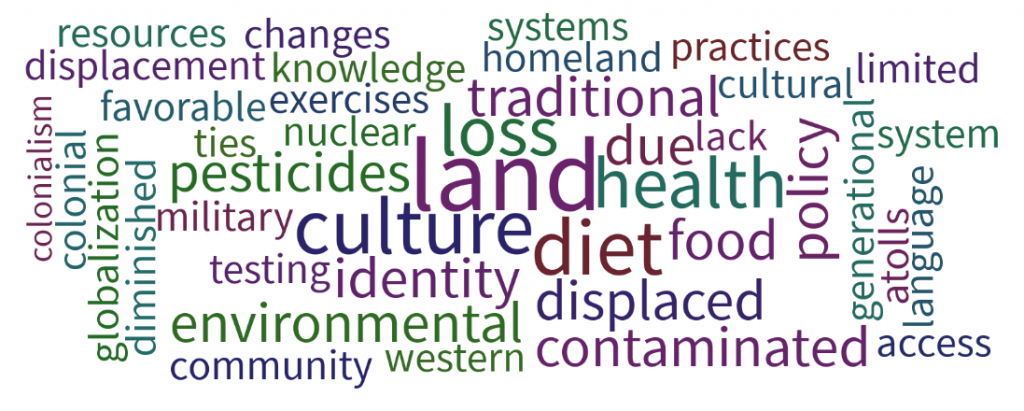Commonalities Contributing to Health Disparities of Indigenous Populations
The module provides students with a means for developing strategies to improve health and safety outcomes of indigenous populations through the incorporation of culturally sensitive approaches. It highlights how indigenous cultures share commonalities contributing to health disparities, including colonization, globalization, migration, loss of language, land, and traditional culture.

Generational Differences
Every generation has different experiences that are shared with those that come after them, however the depth of emotions are not fluid as with what is present day. Elders once played an important role as community leaders. In the Pacific Islands and Native American societies, elderʻs indigenous and local knowledge protected lives, maintained environmental balances that led to risk reduction. Present day youth, however, expanded their knowledge through academia and press forward to make change. The balance between generational knowledge is important to nurture in indigenous communities. Capturing the knowledge, attitudes and behaviors of generations form complete pathways for the survival of indigenous core foundations.
Many commonalities exist between indigenous populations. Moreover, the spiritual beliefs and relationships to the land have the greatest mutual understandings between indigenous populations. Health and wellness practices of indigenous populations existed for many years. Factors such as colonialism, loss of land, culture, and language were all conditions that drove native populations in becoming marginalized. Despite these losses, indigenous populations continued the passing of generational knowledge through storytelling, songs, and talking circles. Illness to native indigenous populations is attribute to the imbalance or disharmony. The restoration of health and wellness can occur once harmony and balance is achieved through native medicine, restoring positive relations, mending negative environmental impact and caring for self.